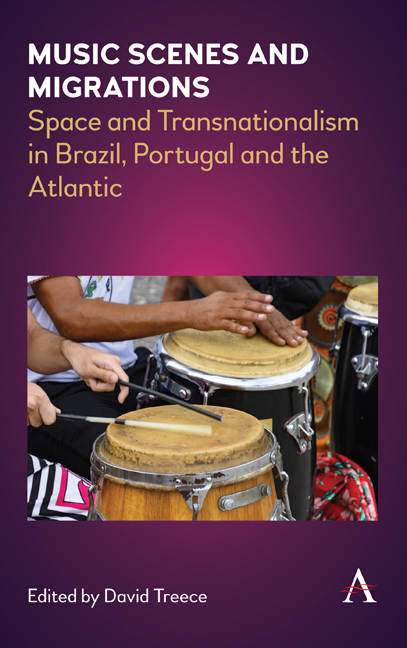Book contents
- Frontmatter
- Contents
- List of Illustrations
- Acknowledgements
- Introduction
- Part 1 Colonial and Postcolonial Transnationalisms, Migrations and Diasporas
- Part 2 Relocating Rio de Janeiro
- Part 3 Demetropolitanizing the Musical City: Other Scenes, Industries, Technologies
- Notes on Contributors
- Notes
- References
- Index
Chapter 11 - Samba, Anti-Racism and Communitarian Politics in1970s Rio de Janeiro: Candeia and the QuilomboProject
Published online by Cambridge University Press: 20 January 2022
- Frontmatter
- Contents
- List of Illustrations
- Acknowledgements
- Introduction
- Part 1 Colonial and Postcolonial Transnationalisms, Migrations and Diasporas
- Part 2 Relocating Rio de Janeiro
- Part 3 Demetropolitanizing the Musical City: Other Scenes, Industries, Technologies
- Notes on Contributors
- Notes
- References
- Index
Summary
This chapter examines how, in 1970s Rio de Janeiro,struggles over space and power in the world ofpopular music and carnival – struggles fordemocratic self-organization and the communitarianownership of cultural life – lay at the heart of oneof the most original initiatives in the history ofanti-racism in Brazil. After confronting thebusiness agenda and authoritarian management oftheir own carnival organization, the Portela escola de samba, and anemerging musical rival in the form of the soulmovement, a group of samba artists led by Candeia(Antonio Candeia Filho), set about creating theQuilombo project, aradical carnival association-cum-arts centreinspired by historic traditions of Afro-Braziliancollective organization and resistance to colonialslavery.
July 1978 saw the single most significant event in thedevelopment of black activism in contemporary Brazil– the founding of the Unified Movement AgainstRacial Discrimination, later renamed the UnifiedBlack Movement (Movimento Negro Unificado – MNU)(Hanchard 1994; Pereira, Amilcar Araújo 2010, 98,165; Alberto 2011, 291–94). Along with otheremerging social movements of the late 1970s, the MNUstepped into the gap opened up in the monolith ofthe military dictatorship by the promise of agradual, controlled process of liberalization,announced by General Ernesto Geisel's 1974–79administration. Spurred on by the nationalliberation struggles of Portugal's African colonies,and by the 1967–75 Black Power era of the US CivilRights movement, Afro-Brazilian activists set aboutradically rethinking the politics of black identityand anti-racism in relation both to the dominantdiscourses on race and nationality within their owncountry, and to the Africanist and diasporic agendasposed by the international conjuncture.
A central challenge lay in the dominant ideologicaldiscourse of ‘racial democracy’, dating back to the1940s; in official pronouncements, publications andcultural policies, this discourse insisted on thecentrality of mestiçagem, or ethnic and culturalmixture, as ‘a pillar of national strength, orderand authority’ (Alberto 2011, 249) and the key toBrazil's supposedly exceptionalist model ofharmonious racial and social relations. In 1970,Mário Gibson Barboza, the regime's minister forOverseas Relations from 1969 to 1974, had arguedthat ‘since there is no racial discrimination inBrazil, there is no need to take any sporadiclegislative, judicial or administrative measures toguarantee the equality of races’ (Telles 2003,58).
- Type
- Chapter
- Information
- Music Scenes and MigrationsSpace and Transnationalism in Brazil, Portugal and the Atlantic, pp. 125 - 136Publisher: Anthem PressPrint publication year: 2020



